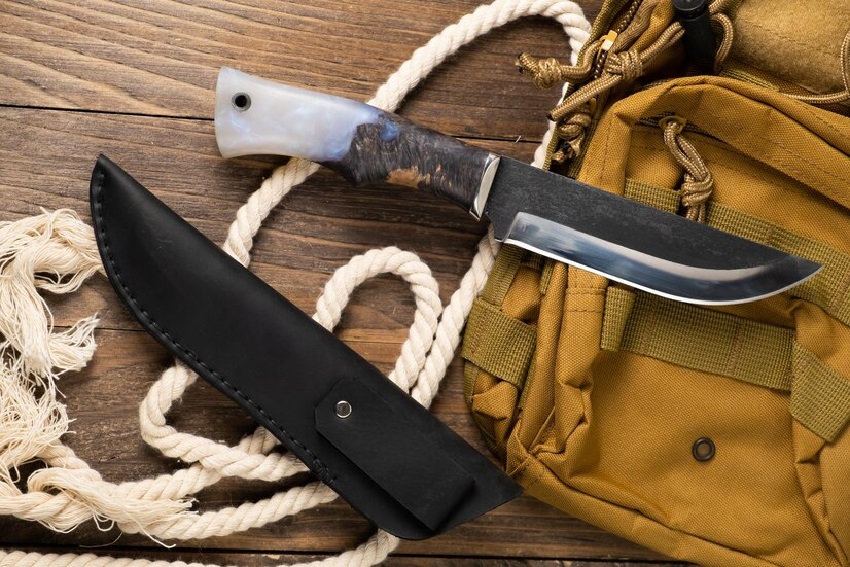In the world of knives, specifically for kitchen professionals, the choice between a fixed blade and boot knives can be pivotal. Each type of knife offers unique advantages that can impact the efficiency and safety of your culinary tasks. This article delves into the nuances of both, helping you make an informed decision tailored to your needs in the kitchen.
For kitchen professionals, the primary consideration often revolves around the functionality and versatility of the knife. While fixed blade knives are known for their robustness and reliability, boot knives are prized for their discreetness and ease of access. Understanding these differences is crucial for anyone serious about their culinary craft.

What is a Fixed Blade Knife?
A fixed blade knife is a knife that has a blade that is permanently affixed to the handle. This design offers maximum strength and durability, making it a preferred choice for heavy-duty kitchen tasks. The absence of moving parts means there's less chance of mechanical failure, which is a significant advantage in a busy kitchen environment. For more insights on the best options, you might consider checking out best fixed blade knives under $51.
Understanding Boot Knives
Boot knives, on the other hand, are typically smaller and are designed to be easily carried, often in a sheath that fits into or attaches to a boot. While not traditionally used in kitchen settings, their compactness and quick accessibility can make them a handy tool for certain tasks. They are ideal for precision work, such as peeling or trimming, where a larger knife might be cumbersome.
Key Considerations for Kitchen Use
When deciding between a fixed blade and a boot knife for kitchen use, consider the following:
Blade Durability and Strength
For tasks that require significant force, such as cutting through thick cuts of meat or breaking down poultry, a fixed blade knife is generally superior due to its robust design. The continuous blade-to-handle construction provides stability, reducing the risk of the blade snapping under pressure.
Portability and Accessibility
In scenarios where you need a knife that is easy to carry and access, a boot knife might be preferable. Its compact nature makes it a good choice for quick tasks that require minimal effort. However, its important to note that this convenience often comes at the expense of the larger blade size and strength found in fixed blades.
Which Knife is Better Suited for Kitchen Professionals?
The choice between a fixed blade and a boot knife ultimately depends on the specific needs and preferences of the kitchen professional. If your work involves heavy-duty chopping and slicing, the strength and reliability of a fixed blade are unmatched. However, if you require a knife for quick, precise cuts, a boot knife might serve you well.
For those interested in exploring more about different types of knives, including how they compare with other knife styles, this comparison of fixed blade vs automatic knives can provide additional insights.
Conclusion
In conclusion, both fixed blade and boot knives have their place in the arsenal of a kitchen professional. Understanding the strengths and limitations of each can help you choose the right tool for the task at hand. As always, ensure that your knives are kept sharp and well-maintained to maximize their efficiency and lifespan.

FAQs
1. Can a boot knife be used for all kitchen tasks?
No, boot knives are generally not recommended for all kitchen tasks due to their smaller size and less robust design compared to fixed blade knives.
2. Are fixed blade knives more durable than boot knives?
Yes, fixed blade knives typically offer greater durability and strength, making them suitable for heavy-duty kitchen tasks.
3. How can I maintain my fixed blade knife?
Regular sharpening and proper storage are key to maintaining the longevity of your fixed blade knife. Ensure it is cleaned and dried after each use to prevent rust and corrosion.
For further reading on knife types, you may find this guide on folding vs fixed blade knives helpful.
This article contains affiliate links. We may earn a commission at no extra cost to you.


























